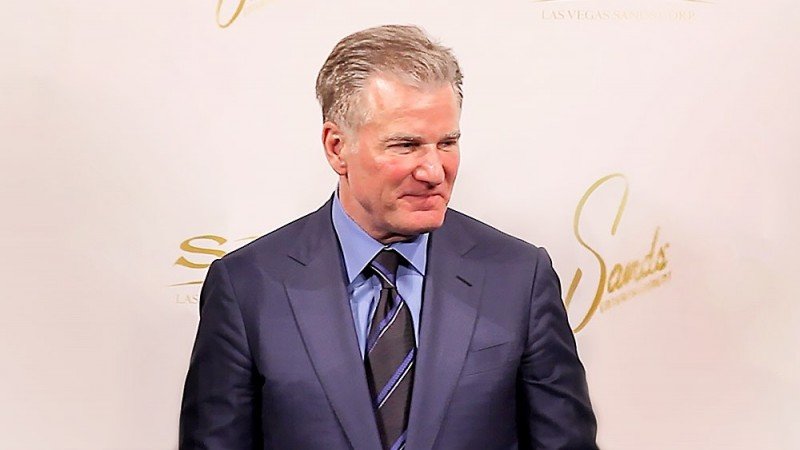Florida: Sands sues Seminole-linked groups over gaming ballot interference; tribe claims “irreparable harm”

In a new episode of the ongoing controversy and legal battle over sports betting in Florida, Las Vegas Sands is now suing groups linked to the Seminole Tribe, accusing “tortious interference with business relationships.”
According to a lawsuit filed on Wednesday in Leon County state circuit court by Sands, the Seminoles tried to block the company from gathering nearly 900,000 signatures needed to get a gaming expansion measure on the 2022 ballot, reports Politico.
The casino giant alleges the tribe is paying off petition gatherers to break previous agreements to collect signatures on behalf of the Sands-backed ballot measure. Allegedly, petition gatherers are being paid to collect signatures for an informal tribe petition drive or to not work in Florida at all.
“In addition to their coordinated harassment and intimidation campaigns, parties acting on behalf of the Seminole Tribe are 'paying off' contracted petition circulators as part of a scheme to ensure such circulators do not perform the tasks they have been contracted to provide to the Plaintiffs,” reads the lawsuit to which the previously cited source obtained access.
The suit is seeking to stop the alleged interference, as well as unspecified monetary damages. Las Vegas Sands claims the tribe is putting its petition at risk, on which it has already spent $27 million in support. The Seminole Tribe is not named as a defendant in the suit.
The plaintiffs include Sands-funded political committee Florida Voters in Charge. The six-page lawsuit includes detailed allegations of the Seminole-backed efforts to pay off rival petition gatherers. The ballot measure would allow existing card rooms to become casinos if they are 130 miles from a Tribe-owned facility.
The lawsuit contends Seminole-backed groups were making payments to rivals through a Maitland, Fla. office run by Missouri-based Only Petition Works, LLC. The money was allegedly funneled through Cornerstone Solutions, a Palm Beach County-based consulting firm. Cornerstone is also allegedly targeting petition gatherers working for a separate gaming measure backed by FanDuel and Draftkings.
The battle for sports betting in Florida has been an ongoing one since Seminoles were granted a monopoly over this form of wagering in an expanded compact with the state. The deal called for the tribe to pay Florida at least $2.5 billion over the first five years in exchange for sole control over sports wagering, plus the option to add roulette and craps to its operations.
A ruling by Judge Dabney L. Friedrich late last month concluded the tribe’s compact violated the federal Indian Gaming Regulatory Act, which mandates state-sanctioned gambling to occur on tribal land. The agreement allowed bettors to place wagers through mobile devices anywhere within the state as long as these were processed through computer servers on tribal property, which the judge deemed a “fiction.”
While pari-mutuels opposing the sports betting agreement said the tribe “rushed” to offer online sports betting, launching its app on Nov. 1, mere days before a Nov. 5 hearing in the case, the Seminole Tribe has now fired back. The tribe claims it was within its rights to launch operations and that it has already suffered “irreparable harm” from the judge’s ruling.
The tribe is arguing that if a motion of stay is not granted, said harm is set to continue. “The District Court’s decision has already greatly harmed the Tribe’s operations, with vendors ceasing operation with the Tribe, and these effects will be exacerbated without a stay,” the tribe wrote in a response. This could refer to Google's recent decision to shut down sports betting advertising in Florida.
On the other hand, pari-mutuels have claimed the tribe should not be granted a motion for stay, saying the “irreparable harm” was self-imposed, as the tribe knew it would likely face legal challenges to the compact and still chose to launch operations. Seminoles argue it was entirely reasonable to make investments and go live.
Additionally, in their statement, the tribe is also claiming that the defense mounted by the federal government on their behalf did not adequately represent their interests. “The District Court said during the motions hearing that it was “confounded” by Federal Defendants’ litigation position that they did not need to address the merits arguments,” the tribe’s response reads.
A date for the motion of stay decision has not been yet scheduled. The motion was filed on Thanksgiving with the Circuit Court of Appeals after a prior motion for stay was denied by Friedrich.
















